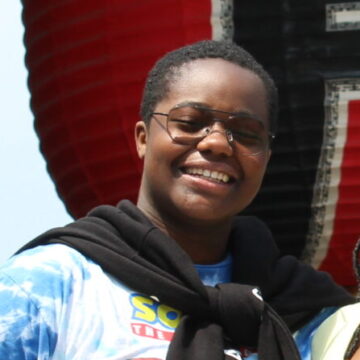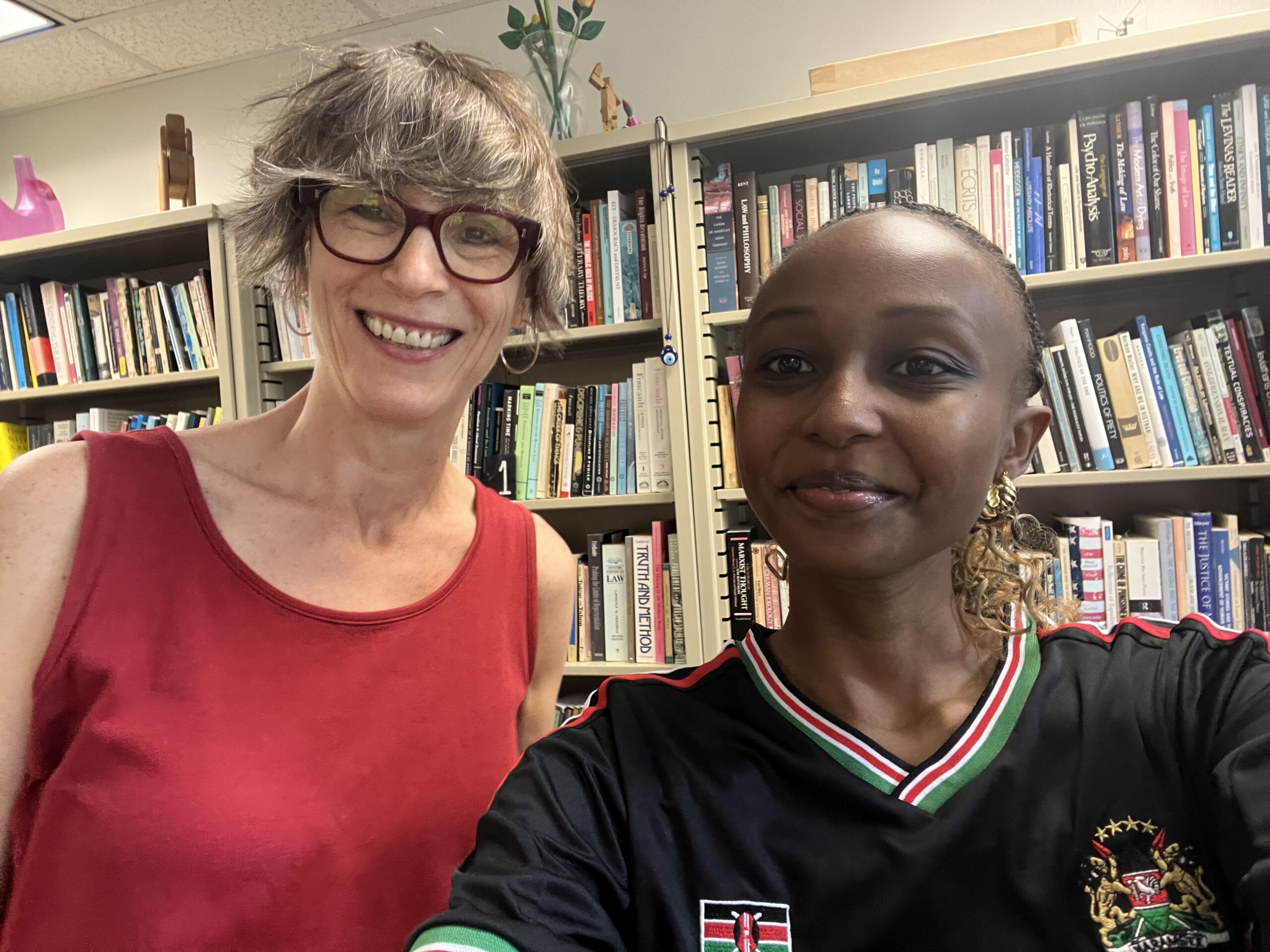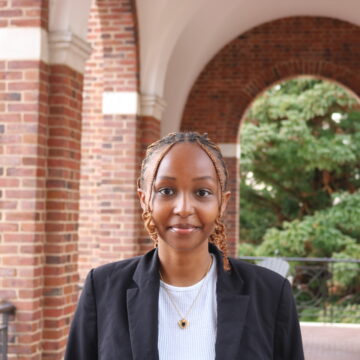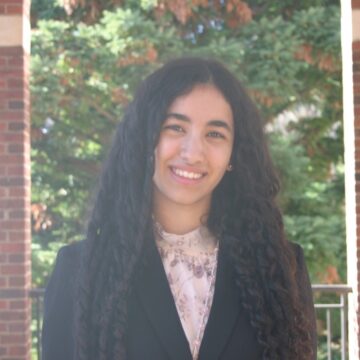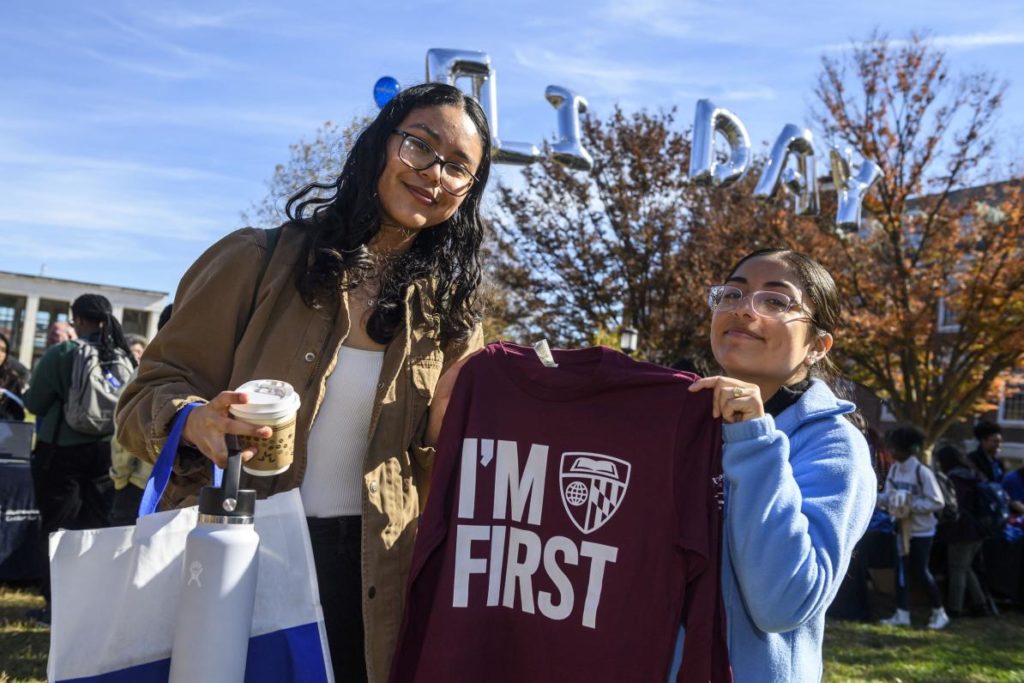
Ahead of FLI (First-Generation and/or Limited-Income) Day, Hopkins Insider interviewed Modinat Sanni, Associate Director for Programming with the FLI Network and Director of the Hop-In Summer Program.
This transcript has been edited for brevity and clarity.
Could you give us an overview of what FLI Day is and how it started?
Modinat: FLI Day is the national celebration of first-generation students at universities across the nation. At Hopkins, we’re specific about celebrating the limited income part too because that is also a part of that experience. It’s really an opportunity for the campus community—including those who identify personally as first-generation/limited-income and those who are supportive of that community (who we call FLI friends)—to honor them and celebrate all they’ve accomplished in their journey.
At Hopkins, one of the narratives we want to push forward is FLI students come with experiences equally as important as their non-FLI peers. Our goal is to bring all that to the forefront in our programming throughout the year, but particularly on November 8, when we celebrate the day on campus.
How do you identify who FLI students are, and how do you make sure they know what resources are available to them?
Modinat: When students apply to the university, they note on their application if their parents or guardians have completed a four-year degree. Those who we identify as limited income are recipients of the Pell Grant.
One of the things Hopkins has done really, really well is working from the inside out, rather than having a program where all the resources are stuck there. I think of it like a flower that blooms. We have staff members in different aspects of campus who focus on working with the FLI community. At the counseling center, we have a counselor whose specialization is working with FLI students. In the Life Design Lab, there’s an entire team—the SOAR team— with a member who focuses on FLI students.FLI students have the option of joining our Success Coaching Program in Academic Advising (SCAA) where they’re assigned to an advisor who, of course, gives them guidance on their academics, but also takes the time to consider their holistic development.
They may also be invited to join the Hop-In Summer Program, a five-week, pre-college experience. Once school starts, students can join programs within the Center for Student Success. That includes JUMP, which also works with other underrepresented students. Our national fellowships program is for students who wish to apply to programs like Gates Scholars and Rhodes Scholars.
We have staff members in the Center for Student Success who target their efforts specifically to our particular demographic. So even within the resources that exist for all undergrads, some of them are specifically for FLI students.
How have you seen students benefit from engaging with the FLI network?
Modinat: The biggest benefit is the community. Our students have found that being surrounded by other people who are experiencing the same things provides a strong foundation for them to be successful at the institution.
We’ve seen students graduating at the same rates as their non-FLI counterparts, despite navigating a system like college for the first time and coming from a family that did not attend themselves. Our students are getting involved in leadership activities and pursuing research and related experiences at the same rates or even higher than others.
I think it’s because they come into a community that introduces these resources to them early. They don’t have to spend an entire semester and a half finding out that, “oh, there’s an entire office that is dedicated to research,” or “there’s a department where you can study abroad,” or whatever it might be. They have so many staff members and peers around to introduce them to these resources. They’re able to take advantage of them sooner and have an equally competitive likelihood of success.
Do you have any advice for someone who’s thinking about Hopkins?
Modinat: First-generation students, whether they recognize it or not, are used to being innovative, used to having to fill in the blanks or create a bridge for themselves to make something happen. Hopkins is one of the best places to want to try things. Part of the ethos of being at Hopkins is that we try a lot of things. We fail fast. We fail often, but then we get to success.
If you are someone who is curious or you know you want to create a student group, this is a place where you can do it. And if it doesn’t work, so what? It didn’t work. But if it works, fantastic. We are happy to support you through that.
I really want prospective students to know this is not a place where you should feel like you have to come and conform. This is a place where you can try things, grow, and develop into the person who maybe you’re not now, but who you are intending to be.
So come get involved. Join clubs, create clubs, create new things, challenge your professors—that is welcome here. Don’t try to force yourself into a mold. Do what makes sense for you, do what makes you thrive, and what makes you actually flourish.

